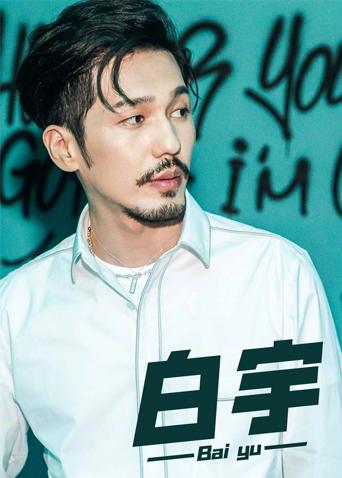尤Kahdem是一个男人谁几乎已经放弃了生命,线永判处低设防监狱农场,线永完全不具威胁性的环境,但仍然觉得有些人是可以改造的。在韩元WRON,办案员马特·佩里已经建立了一个独特的方案,通过让他们受伤的猛禽康复有责任修复破碎的男人-美丽的,可怕的骄傲鹰,隼和猫头鹰。排除万难,马特发生在尤他的头号测试案例,介绍他到Yasmine的,雄伟的楔尾鹰与一个2米的臂展。如果这两个可以驯服对方,一切皆有可能。
尤Kahdem是一个男人谁几乎已经放弃了生命,线永判处低设防监狱农场,线永完全不具威胁性的环境,但仍然觉得有些人是可以改造的。在韩元WRON,办案员马特·佩里已经建立了一个独特的方案,通过让他们受伤的猛禽康复有责任修复破碎的男人-美丽的,可怕的骄傲鹰,隼和猫头鹰。排除万难,马特发生在尤他的头号测试案例,介绍他到Yasmine的,雄伟的楔尾鹰与一个2米的臂展。如果这两个可以驯服对方,一切皆有可能。

回复 :农历腊月二十九,南方一个县城的客运站,小偷朱飞机盯上了两个孩子。16岁的女孩刘欣馨,11岁的混小子刘易斯。因为他们家里有价值不菲的翡翠项链。大年之夜过后,朱飞机准备到刘家行窃,同伙黑狗告诫未曾“破五”行窃于己不利,否则一年都会倒霉,可朱飞机根本不信这套。由于刘欣馨和刘易斯父亲将近一年未归,他们成了留守儿童,小姐弟愈发感到没有安全感。便来到了中介希望能找一个男保姆回家。朱飞机闻之认为是个混进刘家的机会,自告奋勇到刘家当男保姆。入夜。姐弟俩入睡。朱飞机惦记着翡翠项链,决定偷盗,不想被小姐弟狠狠捉弄一把,朱飞机这才想起,破五还没过,看来一切霉运皆因自己破坏了传统规矩而发生。在以后的日子里,朱飞机被迫赶着做饭,收拾屋子,送刘易斯上学的工作。时间一长竟然对孩子们产生了感情。而且期间还认识了刘欣馨的的班主任,美丽善良的孙婧芸。在孙老师的感召下,他们共同做着关爱留守儿童的事情。朱飞机的转变令黑狗不满,当他在客运站发现刘欣馨戴上翡翠项链,便抢了过来。朱飞机赶到为夺回项链与黑狗扭打起来,搏斗中朱飞机受伤。当孙婧芸和姐弟俩扶住奄奄一息的朱飞机时,朱飞机艰难地将带血项链交给刘欣馨。而朱飞机,却渐渐合上了眼。姐弟俩悲痛欲绝,救护车呼啸而至。
回复 :青小鱼是一个奋斗在都市里的勤劳上进的奋斗女,一心勤俭节约地存钱想着出一本自己的书。一次闺蜜可可带她去参加一场高大上的聚会,希望在宴会上认识个金龟婿。不料却结识了刚躲避黑社会大哥阿雄追杀至此伪装侨扮的伪富二代周辉,因而无辜卷入一场充满阴谋的局。周辉为从雄哥那里救下自己兄弟地瓜,跟雄哥商量设局坑骗青小鱼的钱来抵债。后青小鱼果然上当,导致输掉了所有积蓄。青小鱼还被姑妈扫地出门,流落街头。周辉心有所愧,于心不忍,后决心教青小鱼打德州扑克,让她去参加比赛赢取奖金以还清对她的亏欠。经过一段时间的训练,青小鱼报名了国际级扑克大赛,取得当市冠军的好成绩。成功从一条被人欺负的鱼逆袭成为女鲨鱼。
回复 :Somewhere in the remote region, the war ends. In the midst of ruined cities and houses in the streets, in rural hamlets, everywhere where people still live, are children who have lost their homes and parents. Abandoned, hungry, and in rags, defenseless and humiliated, they wander through the world. Hunger drives them. Little streams of orphans merge into a river which rushes forward and submerges everything in its path. The children do not know any feeling; they know only the world of their enemies. They fight, steal, struggle for a mouthful of food, and violence is merely a means to get it. A gang led by Cahoun finds a refuge in an abandoned castle and encounters an old composer who has voluntarily retired into solitude from a world of hatred, treason, and crime. How can they find a common ground, how can they become mutual friends? The castle becomes their hiding place but possibly it will also be their first home which they may organize and must defend. But even for this, the price will be very high.To this simple story, the journalist, writer, poet, scriptwriter, movie director, and film theoretician Béla Balázs applied many years of experience. He and the director Géza Radványi created a work which opened a new postwar chapter in Hungarian film. Surprisingly, this film has not lost any of its impact over the years, especially on a profound philosophical level. That is to say, it is not merely a movie about war; it is not important in what location and in what period of time it takes place. It is a story outside of time about the joyless fate of children who pay dearly for the cruel war games of adults.At the time it was premiered, the movie was enthusiastically received by the critics. The main roles were taken by streetwise boys of a children's group who created their roles improvisationally in close contact with a few professional actors, and in the children's acting their own fresh experience of war's turmoil appears to be reflected. At the same time, their performance fits admirably into the mosaic of a very complex movie language. Balázs's influence revealed itself, above all, in the introductory sequences: an air raid on an amusement park, seen in a montage of dramatic situations evoking the last spasms of war, where, undoubtedly, we discern the influence of classical Soviet cinematography. Shooting, the boy's escape, the locomotive's wheels, the shadows of soldiers with submachine guns, the sound of a whistle—the images are linked together in abrupt sequences in which varying shots and expressive sharp sounds are emphasized. A perfectly planned screenplay avoided all elements of sentimentality, time-worn stereotypes of wronged children, romanticism and cheap simplification. The authors succeeded in bridging the perilous dramatic abyss of the metamorphosis of a children's community. Their telling of the story (the scene of pillaging, the assault on the castle, etc) independently introduced some neorealist elements which, at that time, were being propagated in Italy by De Sica, Rossellini, and other film artists. The rebukes of contemporary critics, who called attention to "formalism for its own sake" have been forgotten. The masterly art of cameraman Barnabás Hegyi gives vitality to the poetic images. His angle shots of the children, his composition of scenes in the castle interior, are a living document of the times, and underline the atmosphere and the characters of the protagonists. The success of the picture was also enhanced by the musical art of composer Dénes Buday who, in tense situations, inserted the theme of the Marseilaise into the movie's structure, as a motive of community unification, as an expression of friendship and the possibility of understanding.Valahol Europaban is the first significant postwar Hungarian film. It originated in a relaxed atmosphere, replete with joy and euphoria, and it includes these elements in order to demonstrate the strength of humanism, tolerance, and friendship. It represents a general condemnation of war anywhere in the world, in any form.
